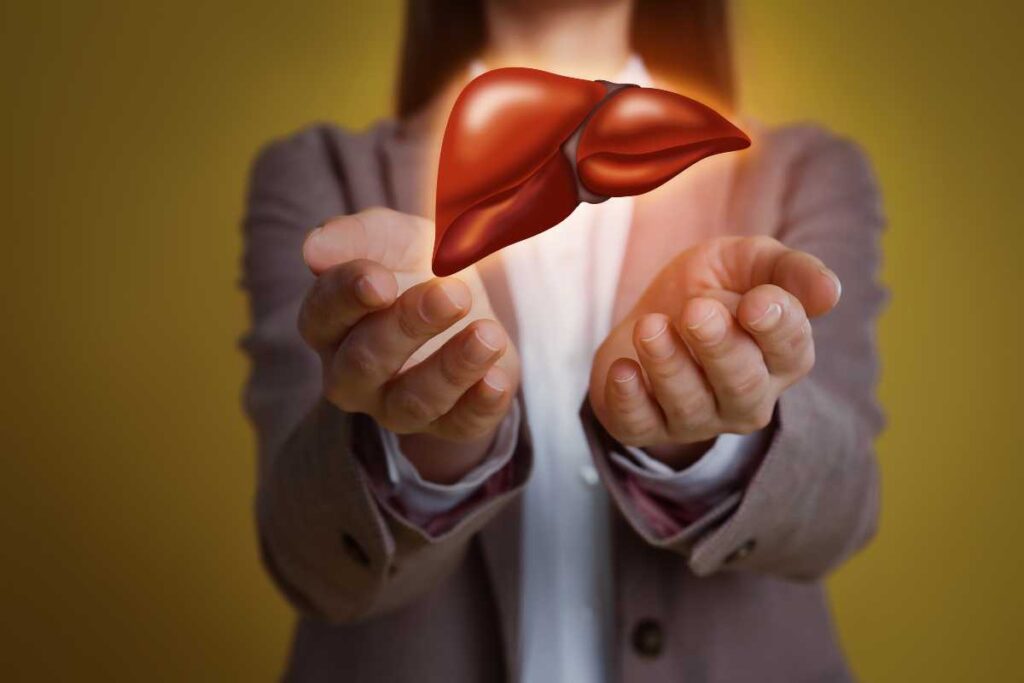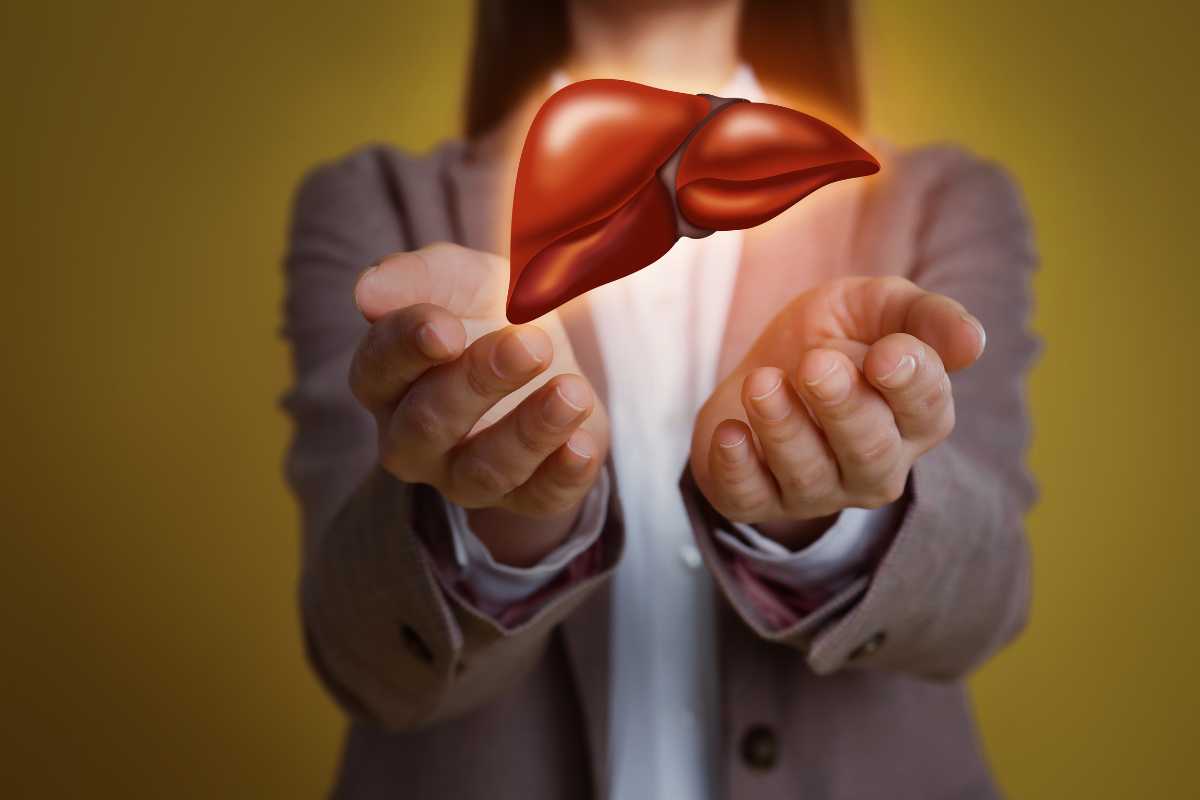Prophetic Medicine for Liver Disease: Natural Remedies and Protection
Prophetic Medicine for Liver Disease: Natural Remedies and Protection

The rising popularity of alternative medicine in Saudi Arabia has prompted a growing interest in exploring prophetic medicine as an alternative treatment option for liver disease. With the increasing prevalence and impact of liver disease in Saudi Arabia, it is crucial to consider alternative treatments that can complement conventional medical approaches.
Prophetic medicine draws from the teachings and practices of Prophet Muhammad (peace be upon him) and includes remedies such as natural honey, camel milk, and the use of sucking cups. These remedies have been mentioned in various Islamic texts and are believed to possess medicinal properties that can benefit individuals with liver disease.
This blog post aims to delve into the concept of prophetic medicine for liver disease, highlighting its potential benefits and providing insights into its application within the context of Saudi Arabia.
| Causes of Liver Disease | Explanation |
|---|---|
| Alcohol abuse | Excessive and prolonged use of alcohol can lead to inflammation and scarring of the liver. |
| Viral infections | Infections caused by hepatitis viruses (such as hepatitis A, B, and C) can damage the liver. |
| Obesity | Being overweight or obese can increase the risk of developing non-alcoholic fatty liver disease (NAFLD). |
| Poor diet | Consuming a diet high in saturated fats, sugar, and processed foods can contribute to liver damage. |
| Medications | Certain medications, including some painkillers, antibiotics, and cholesterol-lowering drugs, can harm the liver. |
| Autoimmune diseases | Conditions like autoimmune hepatitis can cause the immune system to attack and damage the liver. |
| Genetic disorders | Inherited conditions like hemochromatosis and Wilson’s disease can affect the liver’s function. |
| Toxins | Exposure to certain chemicals, toxins, or pollutants can lead to liver damage. |
| Other medical conditions | Certain medical conditions, such as liver cancer, cirrhosis, and liver failure, can cause liver disease. |
“Explore our latest articles on Prophetic Medicine to discover simple, natural remedies that can improve your health. Check them out now and start feeling better!“
Avicenna’s Prophetic Medicine: Diagnosis of Liver Disease
Explanation of Avicenna’s diagnostic methods for identifying liver disease symptoms
Avicenna, the renowned Persian physician and philosopher, developed a comprehensive approach to diagnose liver diseases using his prophetic medicine. His methods involved observing various signs and symptoms to identify potential liver-related conditions.
One of Avicenna’s key diagnostic techniques was pulse diagnosis. According to his teachings, the pulse could reveal valuable information about the health of the liver.
By carefully assessing the rhythm, strength, and quality of the pulse, Avicenna believed that he could detect abnormalities associated with liver diseases. For instance, irregular or weak pulses might indicate underlying liver dysfunction.
In addition to pulse diagnosis, Avicenna emphasized the significance of tongue examination in diagnosing liver-related conditions. He believed that changes in the color and coating of the tongue could provide valuable insights into liver health. A yellowish or pale tongue coating might suggest hepatic disorders such as viral infections or even variceal bleeding.
Discussion on the use of pulse diagnosis to assess liver health according to Avicenna’s teachings
Pulse diagnosis is an essential component of Avicenna’s diagnostic approach for evaluating liver health. He believed that by palpating different areas of the wrist and analyzing specific characteristics of the pulse, he could gain insight into various aspects of liver function.
Avicenna identified three primary pulses related to different organs within the body, including one specifically associated with the liver. By examining this particular pulse point on a patient’s wrist, he aimed to detect any irregularities or imbalances indicative of liver disease.
Furthermore, Avicenna considered other factors while interpreting pulse patterns for diagnosing liver conditions. These factors included variations in pulse strength (weak or strong), speed (fast or slow), and rhythm (regular or irregular). Through careful analysis and interpretation, he sought to uncover potential dysfunctions within the liver.
Highlighting the significance of tongue examination in diagnosing liver-related conditions
Avicenna regarded tongue examination as a valuable tool for diagnosing liver-related conditions. He believed that changes in the appearance and coating of the tongue could provide crucial information about liver health and potential diseases affecting this vital organ.
Avicenna observed that a yellowish or pale coating on the tongue might indicate liver disorders such as viral infections or variceal bleeding. Conversely, a healthy pink color was seen as a positive sign of normal liver function. Avicenna paid attention to other characteristics of the tongue, such as its texture and moisture level, which he believed could further aid in diagnosing liver-related ailments.
By combining pulse diagnosis with tongue examination, Avicenna aimed to obtain a comprehensive understanding of an individual’s liver health. These diagnostic methods served as adjuvant tools to identify potential dyspeptic symptoms, viral infections, variceal bleeding, and other diseases affecting the liver.
The Protective Effects of Ajwa Dates against Liver Disease
Exploring the Antioxidant Properties of Ajwa Dates
Ajwa dates, a type of date fruit primarily grown in Saudi Arabia, have long been recognized for their beneficial effects on health. One area where these dates have shown promise is in the protection against liver disease. Recent studies have highlighted the antioxidant properties present in Ajwa dates that contribute to liver protection.
Reducing Inflammation and Oxidative Stress
Liver disease often involves inflammation and oxidative stress, which can be detrimental to liver health. However, research has shown that consuming Ajwa dates can help reduce inflammation and oxidative stress in the liver. These protective effects are attributed to the presence of bioactive compounds such as flavonoids and phenolic acids found in Ajwa dates.
Bioactive Compounds Supporting Liver Health
Ajwa dates contain various bioactive compounds that support liver health and function. One such compound is saponin, which has been shown to possess hepatoprotective properties by reducing liver damage caused by toxins.
Studies have indicated that Ajwa dates contain high levels of antioxidants like anthocyanins and carotenoids, which help neutralize harmful free radicals and protect liver cells from damage.
Ramadan Fasting and Liver Protection
During the holy month of Ramadan, Muslims observe fasting from dawn till sunset. It has been observed that consuming Ajwa dates during suhoor (pre-dawn meal) provides essential nutrients and helps maintain stable blood sugar levels throughout the day.
This practice not only aids overall health but also contributes to protecting the liver from potential damage caused by prolonged fasting.
Black Seed Synergy with Ajwa Dates
Another element of prophetic medicine known for its potential benefits on liver health is black seed (Nigella sativa). Combining black seed with Ajwa dates may enhance their protective effects against liver disease due to black seed’s anti-inflammatory and antioxidant properties. Research suggests that the synergistic effects of these two natural remedies may provide additional liver support.
The Role of Traditional Herbal Remedies in Treating Liver Disease in Saudi Arabia
Liver disease is a significant health concern worldwide, and traditional herbal remedies have long been used as an alternative form of treatment. In Saudi Arabia, these remedies play a vital role in managing liver ailments. Let’s delve into the specific herbs commonly used and their potential effectiveness.
Traditional Herbal Remedies for Liver Disease
In Saudi Arabia, traditional medicine has deep roots, with many people relying on herbal remedies to address various health conditions, including liver disease. Some commonly used herbs for treating liver ailments include:
- Milk Thistle: Milk thistle, also known as Silybum marianum, is renowned for its hepatoprotective properties. It contains a compound called silymarin, which is believed to support liver health by protecting it from toxins and promoting regeneration of liver cells.
- Dandelion Root: Dandelion root (Taraxacum officinale) is another herb frequently utilized in traditional medicine for liver-related issues. It is thought to possess diuretic properties that aid in detoxification and promote bile production, supporting overall liver function.
- Turmeric: Widely recognized for its anti-inflammatory properties, turmeric (Curcuma longa) has also shown promise in protecting the liver against damage caused by oxidative stress and inflammation.
Supporting Evidence
While anecdotal evidence supports the use of these traditional herbal remedies for liver disease management, scientific studies have also explored their potential effectiveness:
- A study published in the Journal of Clinical Gastroenterology found that milk thistle supplementation improved certain markers of liver function in patients with chronic hepatitis C.
- Research conducted on dandelion root extract demonstrated its ability to protect against alcohol-induced liver damage and reduce inflammation in animal models.
- Numerous studies have investigated the therapeutic benefits of curcumin—the active compound found in turmeric—for various liver conditions such as fatty liver disease and viral hepatitis.
Considerations
While traditional herbal remedies may hold promise in managing liver disease, it is crucial to approach their use with caution:
- Consultation: It is essential to consult with a healthcare professional before incorporating any herbal remedy into your treatment plan, especially if you have an existing liver condition or are taking medications.
- Quality and Dosage: Ensure that the herbs you choose are of high quality and sourced from reputable suppliers. Follow recommended dosage guidelines to avoid potential adverse effects.
- Complementary Approach: Traditional herbal remedies should be seen as complementary to conventional medical treatments rather than a substitute. It is important to work alongside healthcare professionals for comprehensive liver disease management.
Integrative Approaches for Liver Disease Management in Saudi Arabia
In Saudi Arabia, the treatment of liver disease is not limited to conventional medical approaches alone. Many individuals are turning to a holistic approach that combines traditional medicine with prophetic medicine principles. This integrative approach aims to address the underlying causes of liver disease while also promoting overall well-being.
Complementary Therapies: Acupuncture and Cupping
Complementary therapies such as acupuncture and cupping are often integrated into treatment plans for liver disease in Saudi Arabia. These practices have been used for centuries and are believed to help restore balance in the body.
Acupuncture involves the insertion of thin needles into specific points on the body to stimulate energy flow, while cupping involves placing cups on the skin to create suction and promote blood circulation.
- Acupuncture: This ancient practice is thought to stimulate certain points on the body, helping to alleviate symptoms associated with liver disease such as pain and inflammation.
- Cupping: By improving blood flow, cupping therapy may aid in reducing congestion and promoting detoxification processes within the liver.
Lifestyle Modifications: Diet and Exercise
In addition to incorporating prophetic medicine principles, lifestyle modifications play a crucial role in managing liver disease. A healthy diet rich in fruits, vegetables, whole grains, lean proteins, and low-fat dairy products can support liver health. Regular exercise is also essential as it helps maintain a healthy weight and reduces the risk of fatty liver disease.
- Diet: Consuming foods that are beneficial for liver health, such as garlic, turmeric, green tea, and cruciferous vegetables like broccoli or cauliflower.
- Exercise: Engaging in moderate-intensity exercises like brisk walking or swimming can improve overall cardiovascular health while supporting optimal liver function.
Prophetic Medicine Practices
Prophetic medicine refers to remedies derived from the teachings of Prophet Muhammad (peace be upon him). These remedies often involve natural ingredients such as honey, black seed oil, and dates. In the context of liver disease management, prophetic medicine practices may include:
- Honey: Known for its antibacterial and anti-inflammatory properties, honey can be consumed or applied topically to support liver health.
- Black Seed Oil: This oil is believed to have antioxidant and anti-inflammatory effects, potentially benefiting individuals with liver disease.
- Dates: Rich in fiber and essential nutrients, dates are considered beneficial for overall digestive health.
By incorporating these prophetic medicine practices into their treatment plans, individuals with liver disease in Saudi Arabia aim to enhance the body’s natural healing processes while managing symptoms associated with the condition.
The Significance of Prophetic Medicine in Saudi Arabia’s Healthcare System
Deeply Rooted in Culture and Traditions
Prophetic medicine holds immense significance within the healthcare system of Saudi Arabia, as it is deeply rooted in the country’s rich culture and traditions.
This form of medicine draws inspiration from the teachings of the Quran and hadith (sayings and actions) of Prophet Muhammad (peace be upon him). It encompasses various natural remedies, dietary guidelines, and practices that have been passed down through generations.
Integration into Mainstream Healthcare Institutions
In recent years, there has been a notable integration of prophetic medicine into mainstream healthcare institutions across Saudi Arabia.
Recognizing its potential benefits, medical professionals have embraced this approach to complement conventional medical treatments. Many hospitals now offer specialized clinics or centers dedicated to prophetic medicine practices, where patients can receive holistic care.
These integrated healthcare facilities aim to provide comprehensive treatment options by combining modern medical techniques with traditional healing methods derived from religious guidance.
This integration allows patients to benefit from both evidence-based medicine and the wisdom found in prophetic traditions.
Specialized Clinics for Prophetic Medicine Practices
Specialized clinics or centers focused on prophetic medicine practices play a vital role in providing accessible care to individuals seeking alternative treatment options.
These clinics are staffed with healthcare professionals who have expertise in both conventional medicine and prophetic remedies. They offer consultations, prescribe natural remedies mentioned in the Quran and hadith, and perform procedures such as hijamah (cupping therapy).
Patients visiting these clinics receive personalized care tailored to their specific health conditions. The practitioners take into account not only the physical symptoms but also consider spiritual well-being when designing treatment plans.
By incorporating elements of faith into healthcare practices, these specialized clinics create a holistic healing environment.
Embracing Natural Remedies
Prophetic medicine emphasizes the use of natural remedies derived from plants, herbs, honey, and other substances mentioned in religious texts.
These remedies are believed to have healing properties and are often used as complementary treatments alongside conventional medicine. The integration of natural remedies into mainstream healthcare institutions allows patients to explore alternative options that align with their cultural beliefs.
By embracing natural remedies, Saudi Arabia’s healthcare system acknowledges the importance of a holistic approach to wellness. This integration not only provides patients with a wider range of treatment choices but also promotes the preservation of traditional healing practices that have been valued for centuries.
Advancements and Challenges in Incorporating Prophetic Medicine for Liver Disease
Recent advancements in research and technology have paved the way for significant improvement in incorporating prophetic medicine for liver disease. This integration aims to combine traditional healing practices with modern medical approaches, offering a holistic approach to treating liver conditions. However, there are still some challenges that need to be addressed in order to fully embrace this integration.
Recent advancements supporting the integration of prophetic medicine for liver disease
Researchers have been exploring the potential benefits of prophetic medicine in managing liver diseases such as hepatitis and cirrhosis. These studies have shown promising results and highlighted the effectiveness of certain herbs, dietary recommendations, and lifestyle modifications recommended by Prophet Muhammad (peace be upon him). By incorporating these practices into conventional treatment plans, patients may experience improved outcomes and a better quality of life.
Some key advancements include:
- Research on herbal remedies: Studies have demonstrated the efficacy of herbs like black seed (Nigella sativa) in reducing inflammation and improving liver function. These findings support the inclusion of herbal treatments derived from prophetic medicine in mainstream healthcare practices.
- Dietary recommendations: The Prophet Muhammad (peace be upon him) emphasized the importance of a balanced diet and moderation in consumption. Modern research has further validated these principles, showing that a healthy diet can help prevent or manage liver diseases. Integrating these dietary guidelines into treatment plans can significantly improve patient outcomes.
- Lifestyle modifications: Prophetic medicine emphasizes maintaining an active lifestyle, getting sufficient sleep, and managing stress effectively. Incorporating these lifestyle modifications alongside medical interventions can contribute to overall well-being and aid in the management of liver diseases.
Potential challenges in integrating prophetic medicine for liver disease
While there are significant advancements supporting the integration of prophetic medicine for liver disease, several challenges need to be addressed:
- Lack of standardized protocols: One challenge is the absence of standardized protocols for incorporating prophetic medicine into modern healthcare practices. This can lead to inconsistencies in treatment approaches and hinder the widespread adoption of these practices.
- Limited scientific evidence: Although there is growing research supporting the efficacy of prophetic medicine for liver disease, there is still a need for more robust scientific evidence. Conducting further studies and clinical trials can help validate the effectiveness of these integrative approaches.
Bridging the gap between traditional and modern medical practices
Efforts are underway to bridge the gap between traditional and modern medical practices, promoting collaboration and mutual understanding. Integrative medicine centers have been established in some countries to provide comprehensive care that combines conventional treatments with alternative therapies, including prophetic medicine.
By fostering dialogue between traditional healers, researchers, and healthcare professionals, we can create a more inclusive healthcare system that embraces both ancient wisdom and modern advancements. This collaboration can lead to improved patient outcomes and a more holistic approach to managing liver diseases.
Embracing the Potential of Prophetic Medicine in Liver Disease Management
The sections completed before the conclusion shed light on the significance of prophetic medicine in managing liver disease. Avicenna’s Prophetic Medicine provides valuable insights into diagnosing liver diseases, while the protective effects of Ajwa Dates offer a natural remedy for liver health.
Traditional herbal remedies have played a crucial role in treating liver disease in Saudi Arabia, and integrative approaches have shown promise for effective management. The incorporation of prophetic medicine into Saudi Arabia’s healthcare system holds great potential for enhancing liver disease management.
To fully harness the benefits of prophetic medicine in liver disease management, it is essential to continue advancing research and addressing challenges. Further studies can explore additional diagnostic tools and treatment options based on prophetic medicine principles.
Collaboration between traditional healers and modern medical practitioners can foster integrative approaches that combine the best of both worlds. Raising awareness among healthcare professionals about the efficacy of prophetic medicine can lead to its wider adoption.
FAQs
Can prophetic medicine completely cure liver disease?
While prophetic medicine offers valuable insights and remedies for managing liver disease, it is important to note that complete cure cannot be guaranteed. Prophetic medicine provides holistic approaches that complement conventional medical treatments but should not replace them entirely. It is always advisable to consult with qualified healthcare professionals for personalized guidance.
Are there any side effects associated with using herbal remedies for liver disease?
Herbal remedies used in prophetic medicine may have potential side effects or interactions with other medications. It is crucial to consult with a healthcare professional before incorporating any herbal remedy into your treatment plan, especially if you are already taking prescribed medication or have pre-existing health conditions.
How long does it take to see results from using Ajwa Dates for liver health?
The time taken to observe results from using Ajwa Dates as a preventive measure or therapeutic aid for liver health may vary from person to person. Consistency is key, and it is recommended to incorporate Ajwa Dates as part of a balanced diet and healthy lifestyle. If you have specific concerns about your liver health, it is advisable to consult with a healthcare professional.
Can prophetic medicine be used alongside conventional medical treatments?
Yes, prophetic medicine can be used alongside conventional medical treatments. It is important to inform your healthcare provider about any complementary or alternative therapies you are considering. They can provide guidance on how to integrate both approaches for optimal results.
Are there any ongoing research studies on the effectiveness of prophetic medicine for liver disease?
Research on the effectiveness of prophetic medicine for liver disease management is an active area of study. Ongoing research aims to further explore the potential benefits and develop evidence-based guidelines for incorporating prophetic medicine into modern healthcare practices. Stay updated with reputable scientific sources and consult with healthcare professionals for the latest information in this field.







